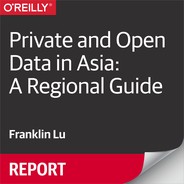Chapter 4. Korea
While Japan generally takes the cake for most developed East Asian country, South Korea has Asia’s best Internet-related infrastructure. Boasting the highest connection speeds, highest available WiFi locations, and an 85% Internet penetration, it comes as no surprise that Korea is interested in the conversation surrounding big data. South Korea’s mobile phone penetration is also extremely high (thanks in no small part to major national player Samsung).
South Korea’s general privacy law comes in the form of the Personal Information Protection Act (PIPA). Enacted in 2011, PIPA defines personal information as any information that can itself, or in combination with other information, identify an individual. Sensitive data, or any information regarding and individual’s ideologies, beliefs, political views, health, sexual life, and other personal information is also further regulated. PIPA regulates all aspects of this information, including how it is collected, recorded, stored, processed, searched, corrected, and destroyed. Furthermore, PIPA’s jurisdiction extends even overseas, when a violation of PIPA would affect a Korean citizen or company. Therefore, it is crucial that companies doing business in Korea are familiar with the letter of the law. PIPA requires that data controllers obtain consent (although this consent may be obtained online, it cannot be tacit or implied consent). Data controllers are also responsible for maintaining acceptable security for data, and in the case of companies, a high-ranking employee is to be appointed to a data protection management position. Furthermore, Korea has industry-specific laws—for example, the IT Network Act places further restrictions on the collection, movement, and manipulation of data in the telecommunications industry. Both the general laws and the industry specific laws have teeth—they both possess enforcement agencies. Under PIPA, the Minister of Public Administration and Security (MOPAS) has authority, but separately, under the IT Network Act, the Korean Communications Commission (KCC) has legal authority. Korea already has some of the strictest data protection laws in the entirety of Asia. In addition, Korea has demonstrated a willingness to further tighten up its legal grip on the issue of data privacy. As Korea, just as any other nation, faces security breaches, Korea has continued to adapt its legal policy to fit the need for security. Moving forward, it may be expected that data privacy regulation in Korea continues to be strict.
Korea is, simply looking at the statistics, incredibly well connected. The aforementioned statistics regarding the overwhelming number of mobile users has some interesting, not-so-surprising side effects. For example, while ecommerce is dominated by PC shopping (70%–80% for most countries), South Korea sees a 50/50 split between online shoppers using a PC and online shoppers using a smartphone—Koreans are comfortable making purchases on mobile devices. The prevalence of mobile devices also means mobile-oriented social media. KakaoTalk is a messaging application that is on roughly 93% of smartphones in Korea; it is also aggressively expanding into a multipurpose platform for games, calls, video sharing, and more (following WeChat’s model). The messaging service’s wild popularity both illustrates and strengthens Korea’s love for the smartphone.
Knowing how Internet connected Korea is, it comes as no surprise that open data is flourishing there. The OECD recently rated Korea as the top country in the world for open government data. The qualifications for a high ranking involved 19 variables, but boiled down to three main factors: availability, accessibility, and government support. Korea stands out as an Asian country that not only makes data available, but also seeks to help the private sector create businesses using said data. South Korea makes data sets available through a web portal, opendata.kr, which offers increasing amounts of data from various sectors of Korean government. Another popular page, http://data.seoul.go.kr, offers data specific to the Seoul municipality. The page offers real-time updates on public transportation, business hours and locations, and more, offering information that could be pertinent to businesses in machine-readable format. The Korea Energy Agency aims to use a competition model on open data to improve efficiency, in another example.
The overall climate in South Korea is one that prioritizes data security on the private side, and data openness on the part of government.
